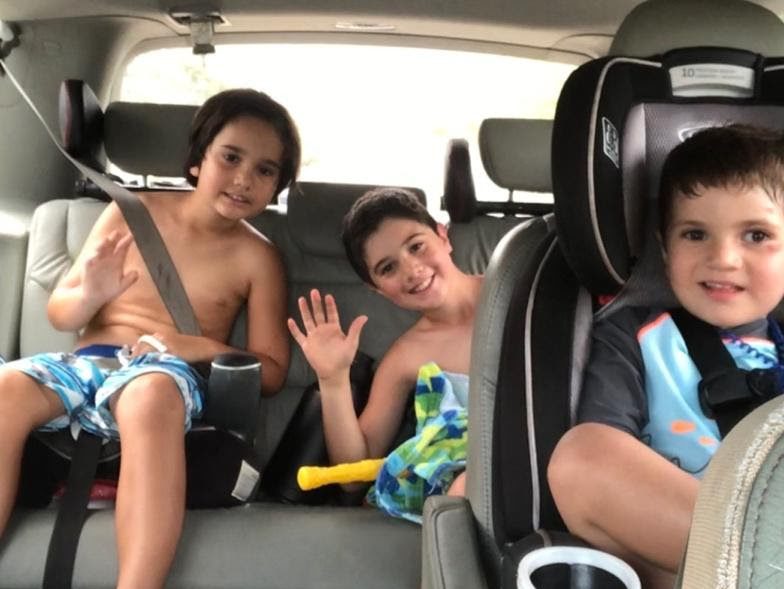
Not long after I recorded the “Going Out” OHS Podcast episode, we decided to go to the beach as a family. Despite just talking about the very topic—how difficult it is to do family activities with Asa—I was still, somehow, unprepared.
We went to a lovely, clean little beach that is a mere 45-minute drive from our home. I’m beginning this piece on my phone as I sit in my parked minivan with Asa, and this is my view.

You’d think due to its proximity we would come to this beach more often than our average of once a year…but today was a fierce reminder of why we don’t.
Two years ago, we came here with our two older boys while Asa was at his therapy clinic. It was definitely much easier, but we felt bad leaving Asa out. So last year, we brought Asa with us and it went pretty well. At least for a little while, he had a wonderful time running around on the beach in his life vest as my husband ran interference between him and the waves. I took some great video, from which I was able to procure this great still shot.
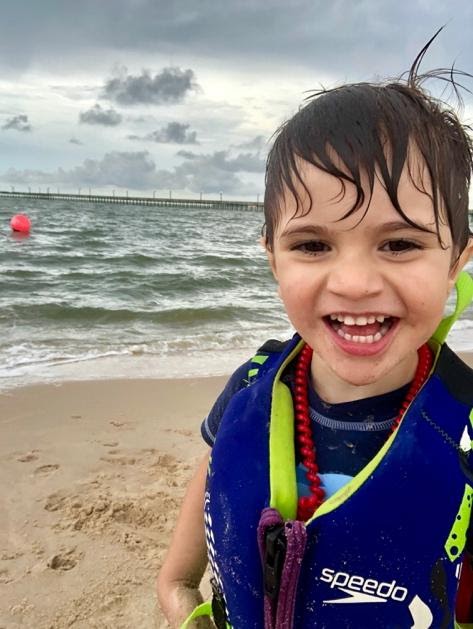
This morning, Asa did amazing with his therapy, and he did great getting his first haircut since the COVID lockdown. He has been doing well recently overall. So I was lulled, I suppose, into unintentional high hopes for this afternoon at the beach.
…he became obsessed with eating the sand…We couldn’t let go of him at all…
To say my hopes weren’t realized would be an understatement. From the moment of our arrival, Asa seemed simultaneously apprehensive and giddy. Although we have spent countless (and mostly successful!) hours working on his walking-alongside-us skills, perhaps due to the unfamiliar feel of the sand under his feet, he began to drop to the ground as we walked—a behavior we have worked hard to eliminate.
Once we got settled at the beach and attempted to give Asa a measure of freedom, he became obsessed with eating the sand—or at least with shoving it into his mouth. We couldn’t let go of him at all, because the minute we did—and even sometimes while we held on—he would manage to swipe a handful and execute an awful-sounding munch. This was particularly distressing, because we have worked really hard to get Asa to stop scooping up and eating mulch from playgrounds and nature trails. Apparently, beach sand is a totally different temptation.
We had a glimmer of hope a couple of times: he ran around for a few seconds without eating sand…and then headed swiftly toward the parking lot. I’m not sure whether he was looking for our vehicle, or if he was just interested in the other cars. (He really likes touching license plates: we hypothesize he thinks license plates are touchscreens.)
Don’t get me wrong: Asa did enjoy himself some. We brought him into the water, and as he was battered about by the waves, his face cycled through a variety of emotions, some of which were excitement and glee. But, having zero comprehension of the danger, he would also fling his body backwards when his dad was holding him, and when he wasn’t being held, he would twist trying to escape. It looked mostly like a lot of this:
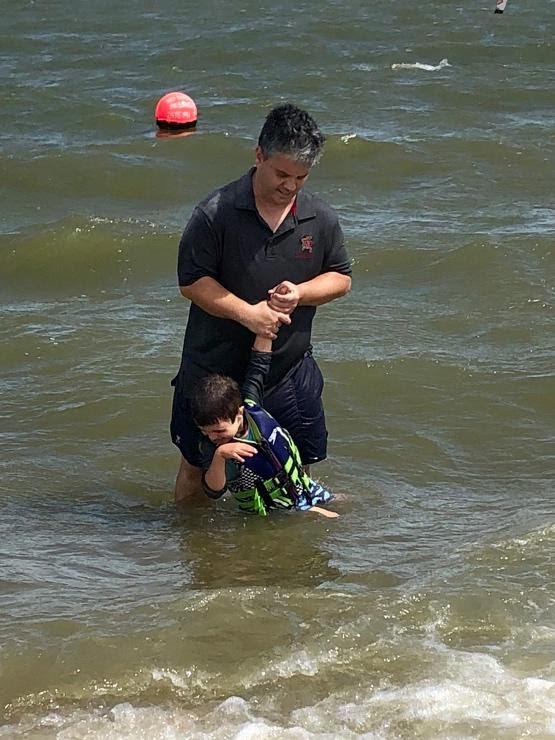
There was a bit of an undertow, and Asa is very strong, so this was understandably a rather exhausting exercise for my husband. I didn’t even try to take him out in the water myself because I feared I could not control him. I did successfully seat him in my lap for a lovely three to five minutes, enjoying the small white crests crashing about our waists.
An irrational pang of jealousy flashed through me.
While all of this was transpiring, a couple of thoughts revolved on repeat in the background of my consciousness:
Will I ever get a chance to read a book at the beach ever again?
Will we ever be able to responsibly afford the kind of help that would make activities like this less stressful?
After barely getting through this hour of a 1:2 ratio of Asa to adults—mostly neglecting our two older boys—it was time for Asa to bid the beach and the ocean adieu. We took him back to the minivan, got him changed, and buckled him in. My husband went to play with the big boys on the beach.
I turned on the music and began to write this piece, feeding Asa peanuts periodically to keep him happy. I was prepared to drive around, but shockingly he was mostly content to people-watch from the vehicle for another hour.
As I sat there, a mom passed by with her three kids, all of them calmly walking without needing her to hold their hands, or to be bribed with peanuts not to elope into danger. An irrational pang of jealousy flashed through me. I thought:
I’ll bet she has no idea how lucky she is.
I took a break from writing to check Facebook. Practically the first post on my news feed was one from a special needs parents support group. It was written by a father named Mike Kyne, and it read:
Today would’ve been my daughter, Aubrey’s, 8th birthday. Unfortunately she was taken from this earth nearly 4 years ago after fighting a lifelong battle with a never diagnosed disease. She was silly, sweet and even though she never spoke she communicated with her eyes and expressions in a way I never knew possible. We miss her everyday.
Mike’s post continued to talk about the Be Fierce Foundation, which they started in Aubrey’s memory to help other families with children fighting rare or undiagnosed diseases.
Wow.
It’s not like this was the first time I have realized that others are struggling with challenges I have never faced. Or that others have made beauty from ashes. But it certainly struck home:
My children are all, at present, alive and healthy of body. We know what Asa’s genetic disorder is, and it does not directly threaten his life. My children are here for me to spend time with and to love. Nothing, except my own slightly self-absorbed desire to write this piece, was preventing me from switching with my husband and playing with my big boys. In truth, volunteering to be the one to “stay with Asa” is sometimes partially an excuse for me to take a mental break, which can lead to being lazy about playing with my two other children.
I had forgotten, just a bit, that an essential component of self-care is the practice of clear-eyed gratitude.
While Asa’s disabilities make certain family activity dreams impossible, I also have the power to make more of the opportunities we have.
Our struggles are real, and they aren’t small ones. Bringing them to light is what Our Hidden Stories is all about, and the world needs to know about them.
At the same time, self-care is especially important to parents of disabled children. And I think I had forgotten, just a bit, that an essential component of self-care is the practice of clear-eyed gratitude.
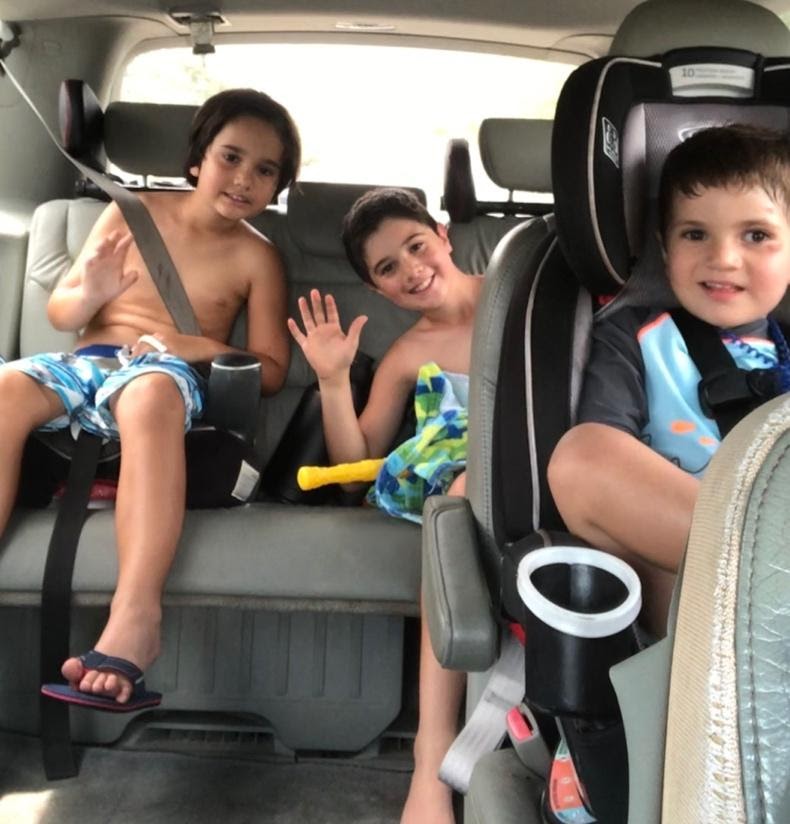

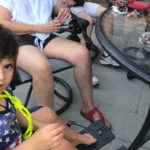
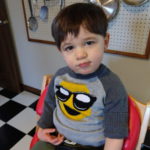
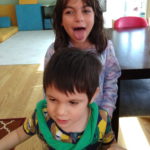
Thank you so very much, Sufan!
Every time I read your story made me cry. What a beautiful and yet painful transformation of your life. Much love from Chi family and reminds me to pray for you and the family.
Love and hugs,
Sufan